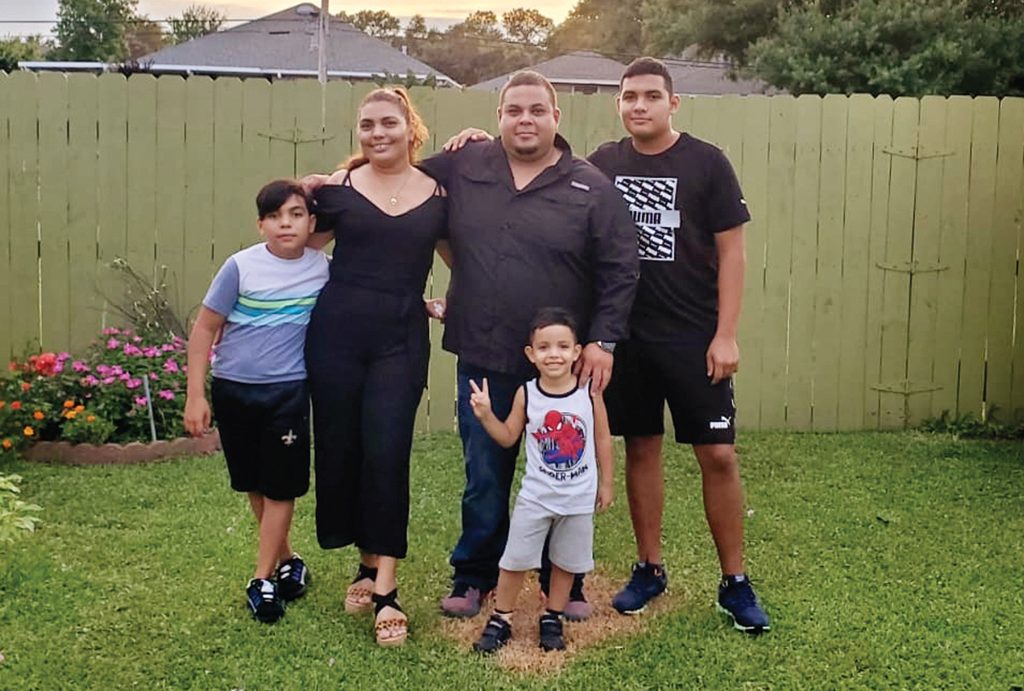Having helped Wilmer García return to the United States, where he had lived from an early age as a legal permanent resident, lawyers for Boston College’s Post-Deportation Human Rights Project and the law firm Nixon Peabody (among them Brianna Nassif Portu ’17 and Ronaldo Rauseo-Ricupero ’07) have now helped him reunite with his wife—whom he met and married during thirteen years of involuntary exile in his native Honduras—and their three sons, ages five through fifteen.
García was deported after having pled guilty, in 2003, to a minor drug offense. It took García’s lawyers eight years and multiple court appearances, including a stop at the US Court of Appeals for the Fifth Circuit and multiple stops at immigration courts and the Board of Immigration Appeals, to establish that the drug conviction didn’t constitute grounds for García’s removal. García returned home to the New Orleans area in 2018, but he had to leave wife and sons behind while they waited for permanent resident visas.
Nixon Peabody’s Portu says the visa application for García’s wife, Ana Maria Ortiz Quiroz, and their sons was delayed by Covid-19, which slowed government action in both the US and Honduras. Another cause of delay: the Trump Administration’s strict immigration policies, as a result of which the family was advised to hold off on filing for visas until García could establish a two-year record of steady employment in the US. To get the visas, García’s family also had to demonstrate that García and his wife had a bona fide marriage—that they hadn’t gotten married for immigration purposes. Finally, they had to show, through documentation and an interview, that the family was law-abiding and that both parents consented to moving the children.
Ortiz Quiroz finally applied for visas in December 2020, but it took until this past April for them to be scheduled for interviews at the US Embassy in Tegucigalpa. Portu prepare them during Zoom and FaceTime meetings.
García, who had visited his family in Honduras as often as he could during their four-year separation, traveled to Honduras before the interview and accompanied them on the flight to New Orleans. Ortiz Quiroz and the boys are now adjusting to life in the United States. “They had never been on an airplane before and never been outside Honduras,” says Portu. Reuniting the family “was a long road,” she adds, “but I couldn’t be happier. The day they flew in was one of the proudest of my legal career.”



